| |
By the end of this lesson you should be able to:
 In this session we are going to have a look at the lives of some people that tried to improve their lives and the lives of the people in their communities and societies as they could not accept that people’s rights were being denied. We are going to focus on 3 men: MARTIN LUTHER KING, NELSON MANDELA and MOHANDAS GANDHI. But we should also mention the names of other people that wanted to change some aspects of the world like Mother Theresa, John Lennon, Dalai Lama, Rigoberta Menchú, etc. In this session we are going to have a look at the lives of some people that tried to improve their lives and the lives of the people in their communities and societies as they could not accept that people’s rights were being denied. We are going to focus on 3 men: MARTIN LUTHER KING, NELSON MANDELA and MOHANDAS GANDHI. But we should also mention the names of other people that wanted to change some aspects of the world like Mother Theresa, John Lennon, Dalai Lama, Rigoberta Menchú, etc.
In pairs read the texts about each one of these people and answer the questions below.
MARTIN LUTHER KING
DATES
1929 Birth of Martin Luther King
1963 Martin Luther King leads a huge march to Washington
1968 Murder of Martin Luther King
|
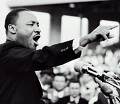 |
6 decades ago, in the southern USA, a young black boy called Martin Luther King was growing up. Martin saw how badly black Americans were treated by white Americans. Blacks could not attend the same schools, eat in the same restaurants or travel on the same buses as whites. |
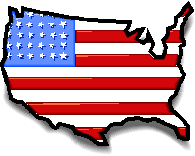 |
All over the south, Martin Luther King led peaceful protests, calling for equal rights for black people. In 1963 he led thousands of people, both black and white, on a march to Washington, the capital of the USA. In a speech he said: “Ï have a dream, that my four little children will be judged not by the colour of their skin, but by the content of their character”. |
Martin Luther King had many enemies. In 1968 he was shot and killed by a white man. Although life for many black Americans has improved, they have still not gained complete equality, for which Martin Luther King fought so hard.
NELSON MANDELA
DATES
1918 Birth of Nelson Mandela
1990 Nelson Mandela is released from prison
1994 Nelson Mandela elected President of the Republic of South Africa
|
 |
Nelson Mandela grew up in a South African village. When he grew up, Nelson went to Johannesburg to study to become a lawyer. There, he saw that black people were very unfairly treated by white people. He joined the African National Congress (ANC), a group that worked for the rights of Black South Africans.
Nelson Mandela and his friends protested against the new “apartheid” laws in South Africa, which separated people because of the colour of their skin. Under apartheid, blacks were forced to live away from big towns, in poor, shabby townships, and work for white for very low wages. |
| |
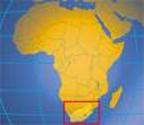 |
Nelson Mandela worked secretly for the ANC. The Police found out and he was arrested and sent to prison. Nelson spent 28 years in prison. Other countries of the world did not approve of the apartheid laws and called for the South African Government to free Nelson Mandela. At last, on February 1990, at the age of 72, Nelson was finally released from prison. |
|
| Four years after Nelson left prison, all South Africans, black and white, elected Mandela as the first black President of the Republic of South Africa. |
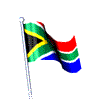 |
|
MOHANDAS GANDHI
DATES
1869 Birth of Gandhi
1919 Gandhi organises the first non-violent protest against British rule in India
1948 Murder of Gandhi
|
 Mohandas Gandhi grew up in India at a time when the country was ruled by Britain. He was a clever boy who studied to become a lawyer. After passing his exams, he went to work in South Africa. There he helped other Indians to protest against unfair treatment by the South African Government. Mohandas Gandhi grew up in India at a time when the country was ruled by Britain. He was a clever boy who studied to become a lawyer. After passing his exams, he went to work in South Africa. There he helped other Indians to protest against unfair treatment by the South African Government.
Many British people lived in India and made the laws. They lived very comfortable lives and had Indian servants.
Gandhi returned to India in 1915. Like many Indians, Gandhi wanted India to be free from British rule. Gandhi called for everybody to stop work as a protest. The British punished the workers and Gandhi was horrified by the violence.
The British put Gandhi in prison for six years. When he was released, he carried on organising peaceful protests. He was sent to prison again for many years.
Gandhi’s followers called him Mahatma meaning Great Soul. He inspired millions of Indians to oppose their rulers and stand up to them peacefully and bravely. At last, in 1942, British rule in India ended and the country became independent. But independence was followed by terrible fighting between people of the Hindu religion and people who were Moslems. |
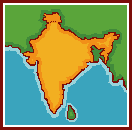 |
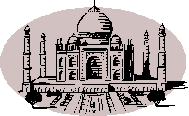 This violence made Gandhi very unhappy. As a protest against the killing, he fasted (stopped eating). Indian people did not want him to die, so they stopped the fighting. Sadly, a few months later, Gandhi was murdered by an angry Hinduman. This violence made Gandhi very unhappy. As a protest against the killing, he fasted (stopped eating). Indian people did not want him to die, so they stopped the fighting. Sadly, a few months later, Gandhi was murdered by an angry Hinduman.
Texts adapted from the book Campaigners for Change. Rosemary Moore, Wayland Publishers Ltd, 1997
EXERCISE 1
Answer the following questions:
- Luther King, Mandela and Gandhi took action in different ways because they saw some human rights were being denied to some groups of people. Describe the denial of human rights in their 3 cases.
- How did they protest against what they thought was not right? (marches, demonstrations, etc)
- Did any of them go to prison? If so, how long were they there?
- Are they all 3 still alive? If not, how did they die?
- Do the problems that they wanted to solve still exist in society nowadays?
- Do you think they contributed to improving their communities? If so, in which way?
EXERCISE 2
 We have been talking about men that tried to change our lives but there are also women that fought and are still fighting for our rights. We have been talking about men that tried to change our lives but there are also women that fought and are still fighting for our rights.
Go to the computer and find examples of women that have protested about unfair things and that have tried to change the world in a way.
 Try typing the phrase Women who changed the worldin Try typing the phrase Women who changed the worldin
Complete the table.
NAMES OF THE WOMEN |
WHAT DID THEY PROTEST AGAINST? |
WHAT DID THEY ACHIEVE? |
|
|
|
| |
|
|
| |
|
|
EXERCISE 3
- YOU MUST BE THE CHANGE YOU WANT TO SEE IN THE WORLD. MAHATMA GANDHI
|
- FREEDOM IS NOT WORTH HAVING IF IT DOES NOT INCLUDE THE FREEDOM TO MAKE MISTAKES. MAHATMA GANDHI
|
- THEY ALWAYS SAY TIME CHANGES THINGS, BUT YOU ACTUALLY HAVE TO CHANGE THEM YOURSELF. ANDY WARHOL
|
 |
- OUR LIVES BEGIN TO END THE DAY WE BECOME SILENT ABOUT HINGS THAT MATTER. MARTIN LUTHER KING JR
|
- THE IMPORTANT THING IS NOT TO STOP QUESTIONING. ALBERT EINSTEIN
|
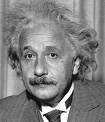 |
- A GOOD DEED, NO MATTER HOW SMALL, IS WORTH MORE THAN ALL THE GOD INTENTIONS IN THE WORLD. ANONYMOUS
|
- ALL THE THINGS WE ACHIEVE ARE THINGS WE HAVE FIRST OF ALL IMAGINED AND THEN MADE HAPPEN. DAVID MALOUF, AUSTRALIAN WRITER
|
 |
- THE MAN WHO DOES THINGS MAKES MANY MISTAKES BUT HE NEVER MAKES THE BIGGEST MISTAKES OF ALL: DOING NOTHING. BENJAMIN FRANKLIN, AMERICAN STATESMAN AND SCIENTIST
|
 |
- IT’S THE POSSIBLILITY OF HAVING A DREAM COME TRUE THAT MAKES LIFE INTERESTING. THE ALCHEMIST, PAULO COELHO
|
- THERE ARE NO PROBLEMS, ONLY CHALLENGES. ANOMYMOUS
|

|
|
|





